Find Help
More Items From Ergsy search
-
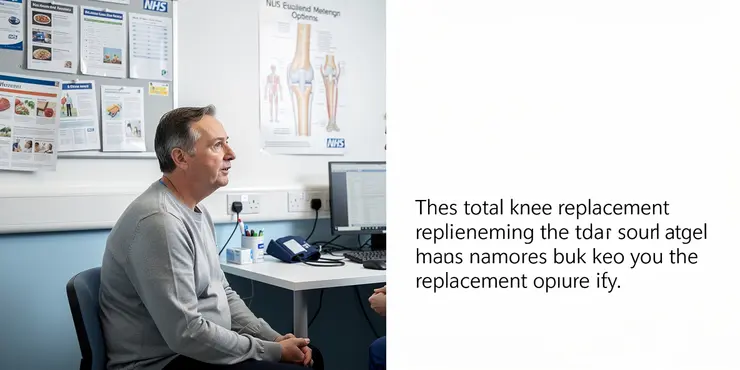
Total Knee Replacement
Relevance: 100%
-
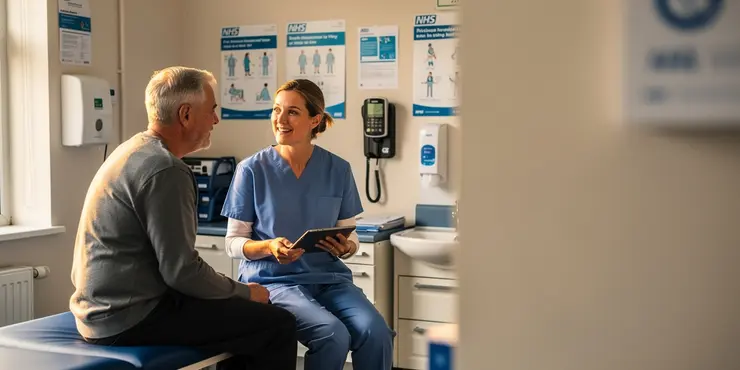
Total knee replacement
Relevance: 100%
-
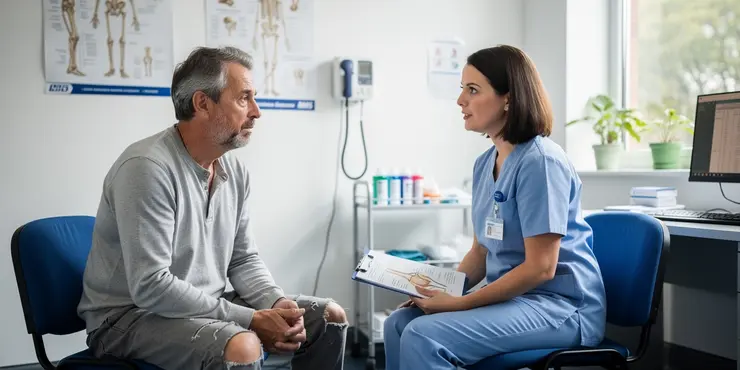
Knee replacement
Relevance: 76%
-

Total Hip Replacement
Relevance: 61%
-
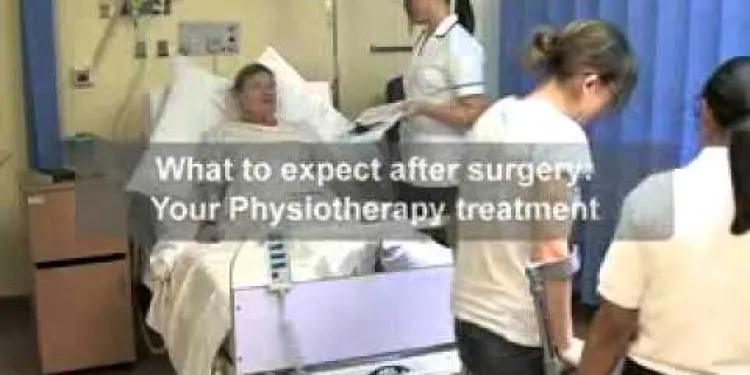
Total hip replacement
Relevance: 58%
-

Total hip replacement at Northumbria Healthcare
Relevance: 53%
-
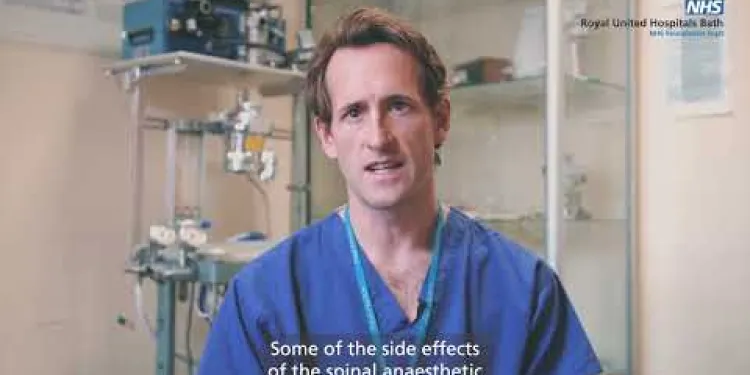
Your anaesthetic choices for your planned hip or knee replacement surgery at the RUH.
Relevance: 45%
-
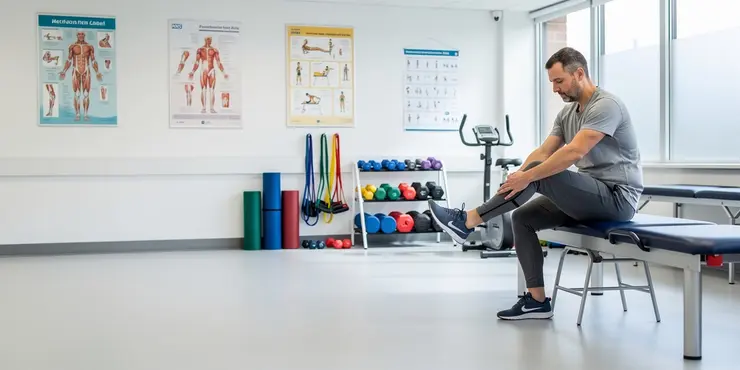
Joint School - Knee Exercises
Relevance: 42%
-
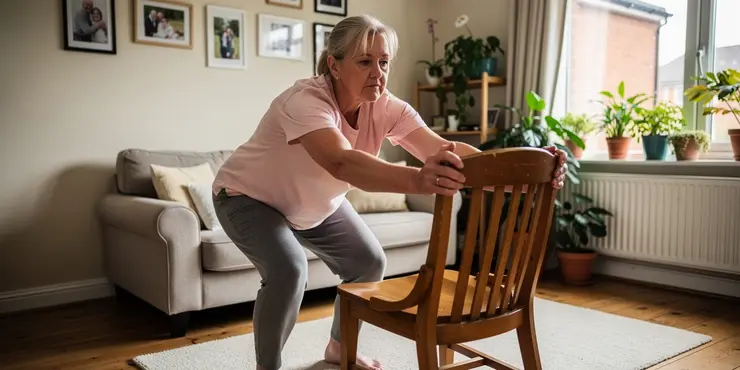
Knee Care Exercises
Relevance: 40%
-

What is a hip replacement?
Relevance: 33%
-
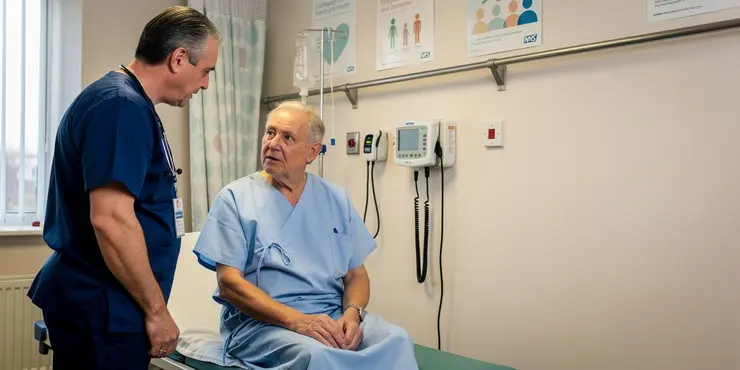
How long does a hip replacement surgery take?
Relevance: 32%
-
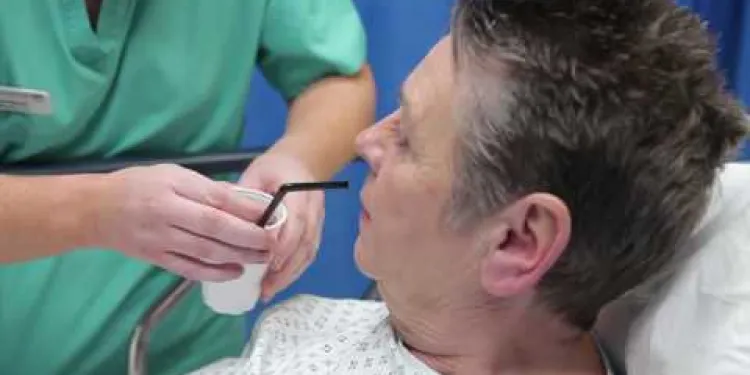
Hip replacement
Relevance: 30%
-

NHS Pension - Total Rewards Statement Explained
Relevance: 30%
-
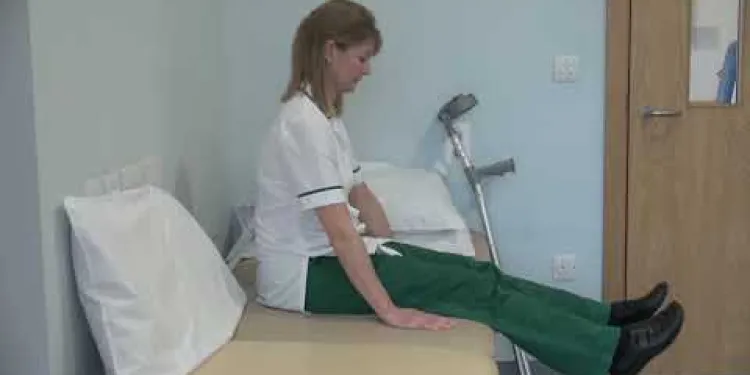
Hip replacement - getting into bed
Relevance: 29%
-
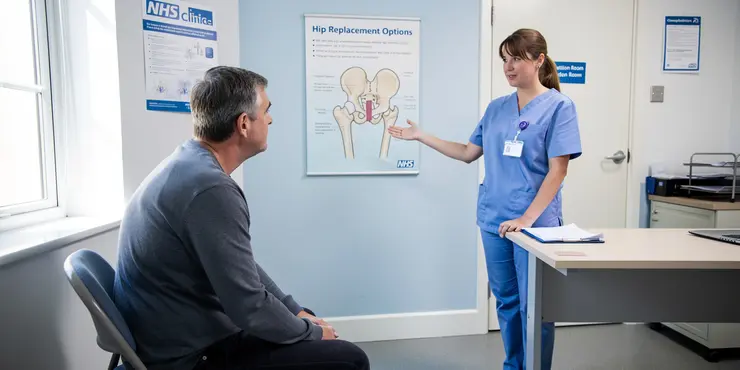
Can both hips be replaced at the same time?
Relevance: 27%
-
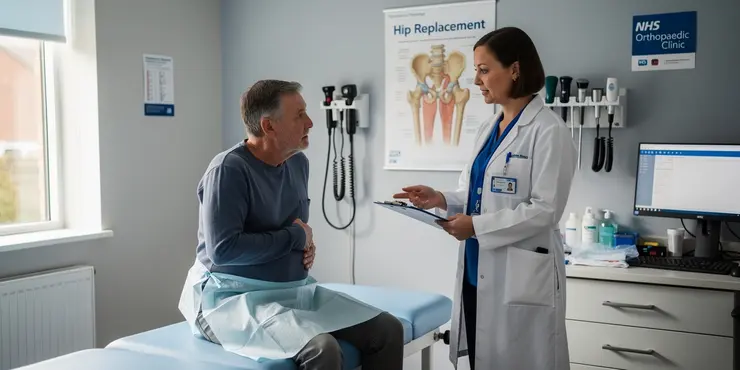
How much does hip replacement surgery cost in the UK?
Relevance: 26%
-

Do I need a Hip Replacement?
Relevance: 26%
-

Would a wealth tax replace other taxes in the UK?
Relevance: 25%
-

Does the energy price cap guarantee my total bill?
Relevance: 25%
-
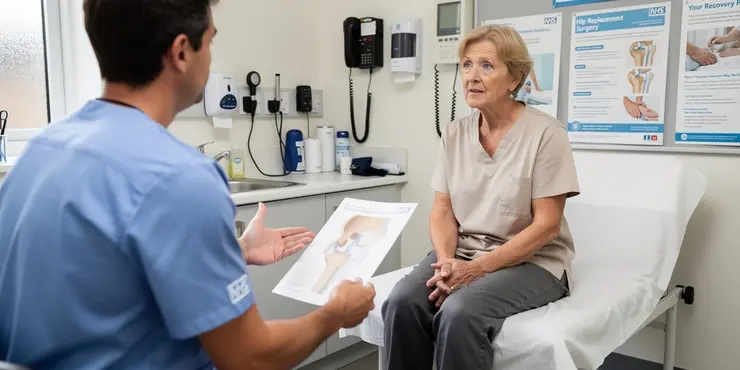
What is minimally invasive hip replacement surgery?
Relevance: 24%
-

What is the recovery time for a hip replacement?
Relevance: 24%
-

How much is being refunded in total by the UK water companies?
Relevance: 23%
-
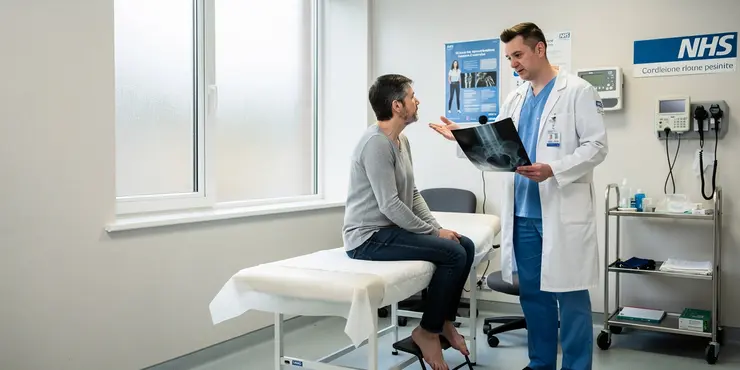
What are the risks associated with hip replacement surgery?
Relevance: 23%
-
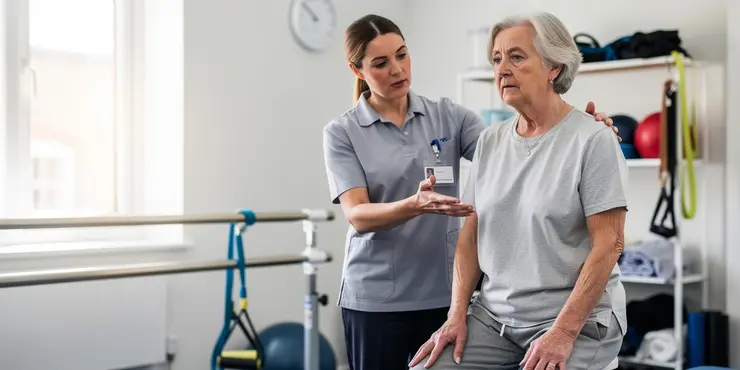
Will I need physical therapy after a hip replacement?
Relevance: 23%
-
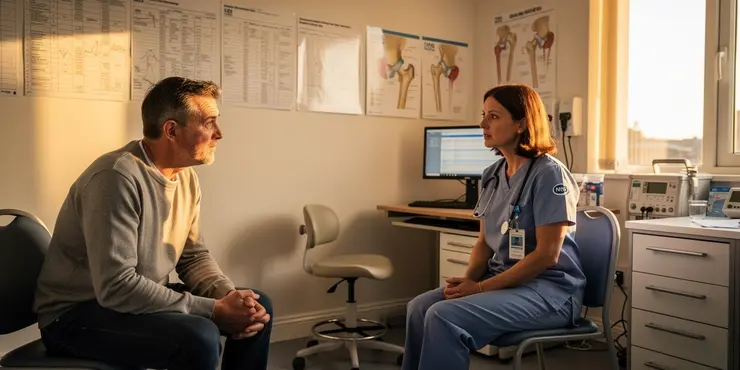
How long before hip replacement implants need replacing?
Relevance: 22%
-

What type of anaesthesia is used during hip replacement surgery?
Relevance: 21%
-
Is hormone replacement therapy safe for menopause masking?
Relevance: 21%
-

How long does it take to recover from a hip replacement operation?
Relevance: 20%
-
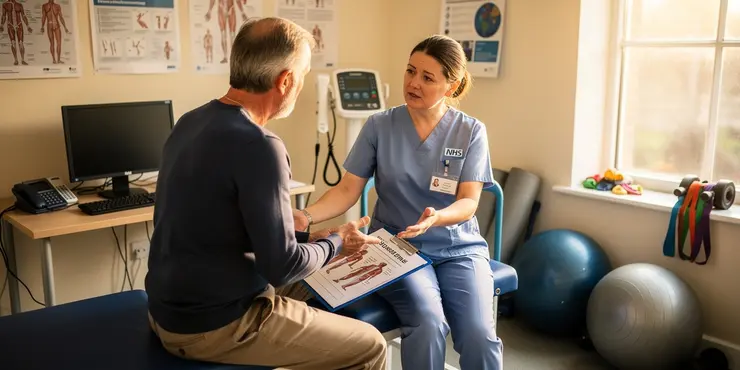
How do I prepare for hip replacement surgery?
Relevance: 20%
-
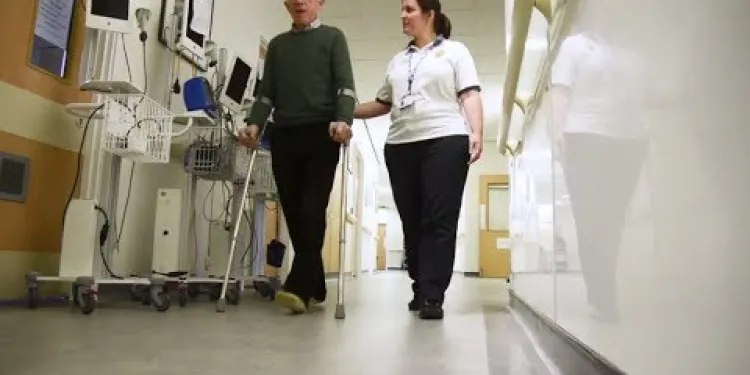
Having a hip replacement - Part Two: Recovery
Relevance: 20%
-
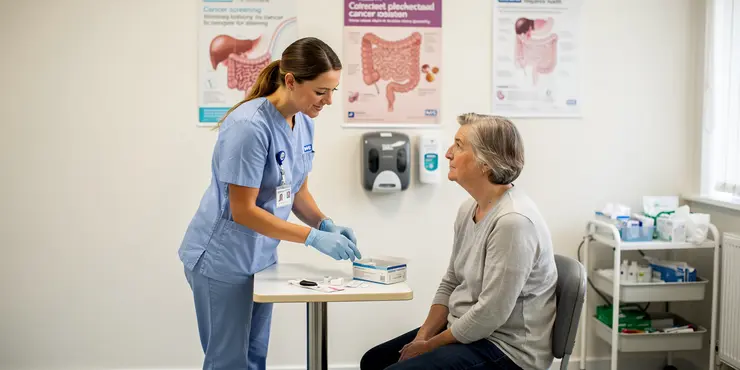
Can home colorectal cancer tests replace a colonoscopy?
Relevance: 19%
-
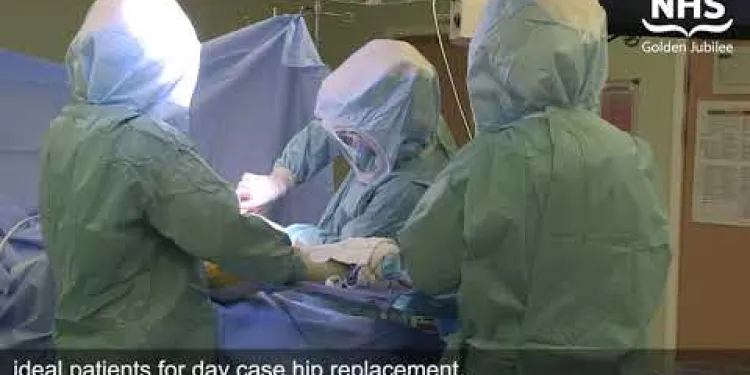
Same day discharge for NHS Golden Jubilee’s hip replacement patients
Relevance: 19%
-

Will the digital driving license replace the physical card?
Relevance: 19%
-

Can hormone replacement therapy (HRT) impact dementia risk?
Relevance: 18%
-
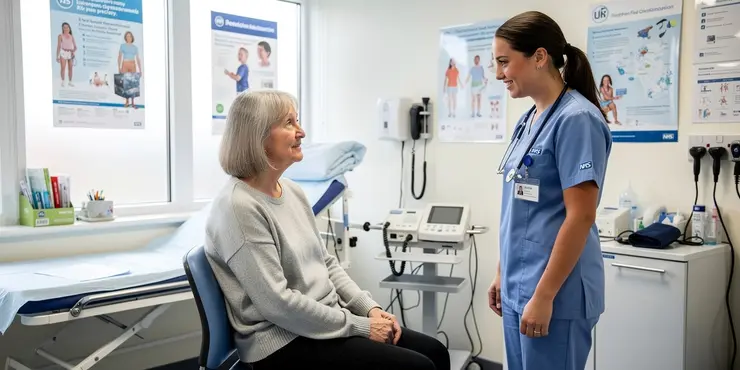
Can makeup with SPF replace sunscreen?
Relevance: 18%
-
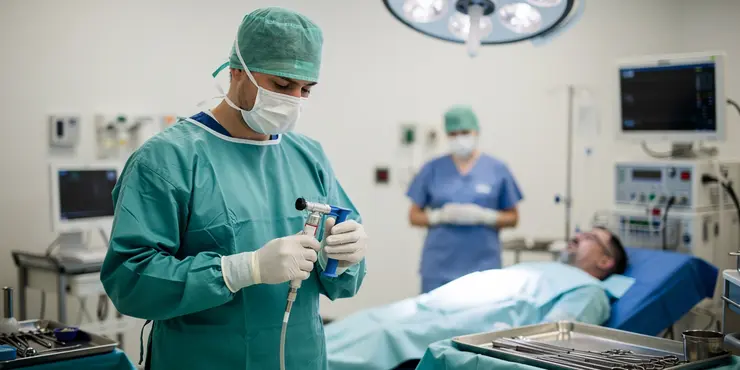
What is bone cement?
Relevance: 17%
-
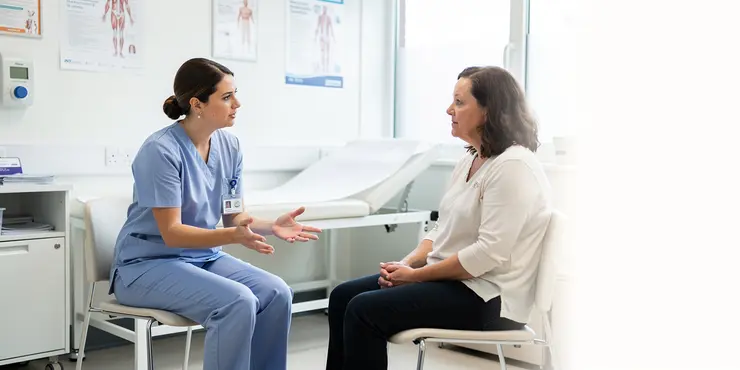
Can lifestyle changes replace the need for weight loss jabs?
Relevance: 17%
-
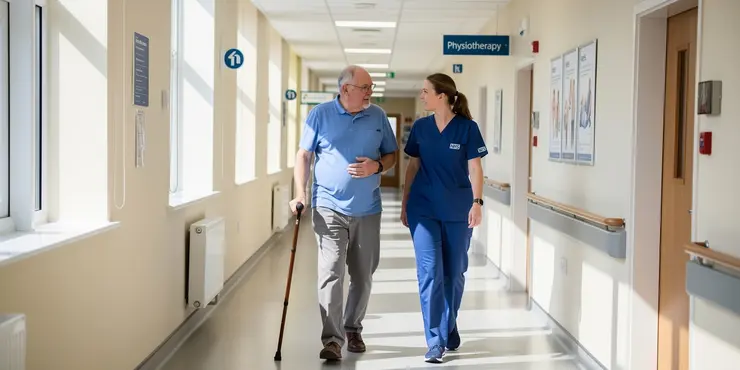
Will I be able to return to normal activities after hip replacement?
Relevance: 17%
-
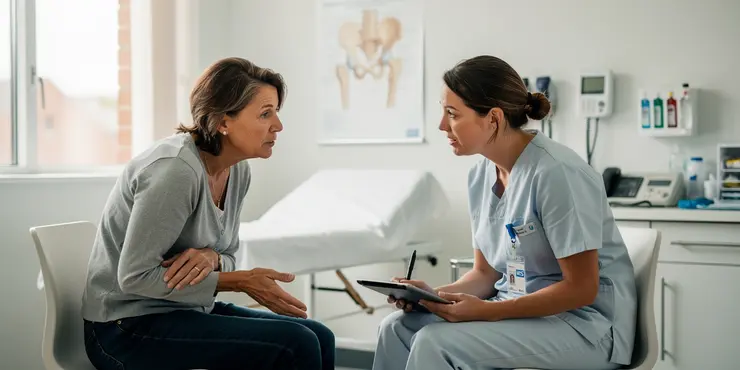
Who is a candidate for a hip replacement?
Relevance: 15%
-
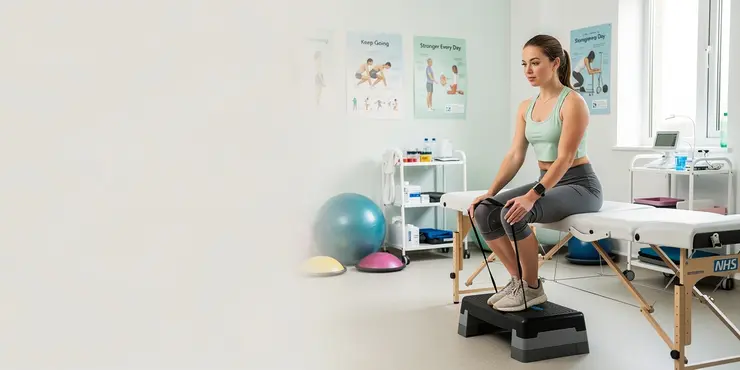
ACL pre-operation exercises
Relevance: 15%
Total Knee Replacement
Introduction to Total Knee Replacement
Total knee replacement (TKR) is a surgical procedure performed to replace a damaged knee joint with artificial components called prostheses. It is commonly recommended for patients suffering from severe arthritis or significant knee injuries that impair movement and cause persistent pain. In the United Kingdom, the NHS offers TKR procedures, ensuring accessible treatment for those in need.Why Consider Total Knee Replacement?
There are various reasons individuals in the UK consider TKR: - **Arthritis**: Osteoarthritis, rheumatoid arthritis, and other types of arthritis can severely damage the knee joint. - **Injury or Trauma**: Fractures, torn cartilage, or torn ligaments can lead to the need for a knee replacement. - **Decreased Mobility**: Chronic knee pain and stiffness can make daily activities, such as walking or climbing stairs, difficult.Procedure Overview
Total knee replacement surgery typically involves the removal of damaged bone and cartilage from the thighbone, shinbone, and kneecap. These parts are then replaced with metal alloy and high-grade plastic prostheses. The procedure usually lasts around 1 to 2 hours and is performed under general or spinal anaesthetic. Post-surgery, patients stay in the hospital for a few days.Recovery and Rehabilitation
Recovering from TKR surgery involves a comprehensive rehabilitation programme, including physical therapy. Most patients in the UK return to normal activities within 6-12 weeks, though complete recovery can take up to a year. Regular follow-ups with healthcare providers ensure the knee is healing properly and that the prosthesis is functioning as intended.Risks and Considerations
While TKR is generally safe, risks include infection, blood clots, implant problems, and continued pain. It's essential for patients to discuss these risks with their surgeon and ensure they have realistic expectations regarding the outcomes of the procedure.Conclusion
Total knee replacement can significantly improve the quality of life for those suffering from severe knee issues. It offers relief from chronic pain and restores mobility, making it a viable option for many patients in the UK. By understanding the benefits, procedure details, and recovery process, individuals can make informed decisions about their knee health.Total Knee Replacement
What is Total Knee Replacement?
Total Knee Replacement (TKR) is an operation. The doctor takes out the hurt part of the knee and puts in new pieces called prostheses. People get this surgery because they have a bad knee from arthritis or an injury. The health service in the UK, called the NHS, helps people get this surgery.Why Do People Need Total Knee Replacement?
Here are some reasons why people in the UK might need TKR: - **Arthritis**: This is when the knee joint gets very damaged and hurts a lot. - **Injury or Hurt**: If you break a bone or tear something in your knee, you might need a new knee. - **Hard to Move**: If your knee hurts or feels stiff, it might be hard to walk or climb stairs.What Happens in the Surgery?
In the surgery, the doctor takes out the damaged bone and cartilage from your knee. They put in new parts made of metal and plastic. This usually takes 1 to 2 hours. You can be asleep or have a special medicine that makes you numb. After the surgery, you stay in the hospital for a few days.Getting Better After Surgery
After the surgery, you will do exercises with a physical therapist to help your knee get strong again. Most people in the UK can start doing normal things in 6-12 weeks. But, it might take up to a year to feel completely better. You will see the doctor to make sure your knee is healing well.Things to Think About
TKR is usually safe, but there are some risks. You might get an infection, blood clots, or have problems with the new knee. It's important to talk to your doctor about these risks so you know what to expect.Conclusion
Total Knee Replacement can help people who have really bad knee pain. It can make the pain go away and help you move better. If you learn about how it helps, what the surgery is like, and how you heal, you can decide if this is the right choice for you.Frequently Asked Questions
What is a total knee replacement?
A total knee replacement is a surgical procedure in which a damaged or worn-out knee joint is replaced with an artificial joint to relieve pain and improve function.
Who is a candidate for total knee replacement?
Candidates typically include individuals with severe knee pain and disability due to arthritis, injury, or other joint conditions that have not responded to non-surgical treatments.
How long does the surgery take?
The surgery generally takes about 1 to 2 hours, but this can vary depending on the specifics of the case and the patient's condition.
What type of anaesthesia is used during the procedure?
Anaesthesia options include general anaesthesia, which puts you to sleep, or regional anaesthesia, such as a spinal or epidural, which numbs the lower body.
What are the risks associated with total knee replacement?
Common risks include infection, blood clots, implant loosening, and continued pain. However, these complications are relatively rare.
How long will I stay in the hospital?
Most patients stay in the hospital for 2 to 4 days after surgery, depending on their recovery progress.
What is the recovery time for total knee replacement?
Full recovery can take between 3 to 6 months, but many patients are able to resume most activities within 6 to 12 weeks.
Will I need physical therapy after the operation?
Yes, physical therapy is a crucial part of the recovery process to regain strength, flexibility, and range of motion in the knee.
How long will the knee replacement last?
Most knee replacements last 15 to 20 years. Advances in technology and surgical techniques continue to improve longevity.
Can both knees be replaced at the same time?
Yes, bilateral knee replacement can be done, but it depends on the patient's overall health and the surgeon's recommendation.
What activities should I avoid after knee replacement?
High-impact activities such as running, skiing, and jumping may need to be avoided to protect the new knee joint.
How soon can I drive after the surgery?
Most patients can resume driving 4 to 6 weeks after surgery, provided they have regained sufficient strength and mobility.
Will I need to use a walking aid after surgery?
Initially, you may need crutches or a walker, but most patients transition to a cane or no aid within a few weeks, depending on their progress.
How much does a total knee replacement typically cost in the UK?
Costs can vary, but private knee replacements can range from £10,000 to £15,000. The procedure is also available on the NHS.
Is there a chance of needing further surgery in the future?
While total knee replacements are designed to last many years, some patients may require revision surgery if complications arise.
What is a total knee replacement?
A total knee replacement is a surgery to fix a knee. The doctor puts in a new knee joint to help you walk and move better.
If your knee hurts a lot, this surgery might help. Talk to your doctor to learn more.
You can use pictures or videos to understand better. Ask a helper if you have questions.
A total knee replacement is an operation. Doctors take out the bad or old knee joint. They put in a new, fake joint. This helps to stop pain and makes it easier to move.
Who can have a total knee replacement?
Some people have a lot of pain in their knee. If medicine or walking with a stick does not help, they might need an operation. The doctor can then replace the knee with a new one.
People who might get their knee replaced:
- Have trouble walking or climbing stairs.
- Feel lots of pain even when resting.
- Their knee is very stiff.
Tools that help you understand more:
- Ask your doctor to explain it clearly.
- Watch a video about knee replacement.
- Talk to someone who had the operation.
People who might need this are those with really bad knee pain or trouble moving because of things like arthritis or an injury. These people have tried other treatments that don't need surgery, but they haven't worked.
How long does the surgery take?
Surgery means an operation by a doctor.
How long will the surgery need?
The surgery time can be different. It depends on what kind of surgery it is.
Ask your doctor.
If you need help to understand, ask someone to explain.
The surgery usually takes 1 to 2 hours. But it can be different for each person. It depends on what needs to be done and how the person is feeling.
What kind of medicine do doctors use to help you sleep during the procedure?
There are different ways doctors can help you not feel pain during surgery. One way is called general anaesthesia, which makes you go to sleep. Another way is regional anaesthesia, like a spinal or epidural, which makes your lower body feel numb.
What can go wrong with a knee operation?
When you have surgery, some things can go wrong, but this doesn't happen very often. Some things that might happen are:
- Getting an infection (when germs make you sick).
- Getting blood clots (when your blood gets thick and forms lumps).
- The new part might not stay in place (implant loosening).
- You might still have pain after the surgery.
Don't worry too much. These things are not common. You can talk to your doctor if you have questions. It's also good to have someone help you understand, like a family member or friend. Tools like picture books or simple videos can also help explain these things to you.
How long will I be in the hospital?
You might stay in the hospital for a short time. It depends on why you are there.
Ask your doctor or nurse how long you will need to stay.
Bring something to help you pass the time, like a book or toy.
Most people stay in the hospital for 2 to 4 days after their surgery. How long they stay depends on how well they are getting better.
How long does it take to get better after knee surgery?
It can take a few weeks, like 6 weeks, for someone to start feeling better.
Most people feel much better in about 3 months.
To help get better, people can do simple exercises and go to physical therapy.
A walker or cane can help with walking at first.
Remember to ask your doctor if you have questions.
It can take 3 to 6 months to get all better. But many people can start doing most things again in 6 to 12 weeks.
Do I need help to get strong again after my operation?
After your operation, you might need some help to get better. This help is called physical therapy. A therapist shows you exercises to make your body strong and healthy again.
Here is something that can help you:
- Ask Your Doctor: Your doctor can tell you if you need physical therapy.
- Ask Questions: It is good to ask lots of questions if you don’t understand something.
Yes, physical therapy is very important. It helps your knee get strong again. It also helps your knee move easier and bend better.
How long will the new knee last?
If you get a new knee, it can last a long time. It might be good for 15 to 20 years. But how long it lasts can be different for each person.
To help your new knee last longer, you can:
- Do gentle exercises like walking or swimming.
- Stay at a healthy weight.
- Talk to your doctor if you feel pain.
Most knee replacements last 15 to 20 years. New technology and better surgery methods help them last longer.
Can you have surgery on both knees at once?
Yes, you can have surgery on both knees at the same time. The decision depends on how healthy you are and what the doctor thinks is best.
What should I not do after a new knee?
After you get a new knee, there are some things you should not do. This helps your knee get better.
Here is what to avoid:
- Do not run or jump. This could hurt your knee.
- Avoid sports with lots of movement, like basketball and soccer.
- Do not lift heavy things. It is too hard on your knee.
- Be careful with climbing stairs. Go slow and use handrails.
If you need help, ask a friend or family member. Use a walking stick or crutches if you need them. Always talk to your doctor or nurse about what you can and cannot do.
Some activities like running, skiing, and jumping can be hard on your new knee. It's best to skip these activities to keep your knee safe.
When can I drive after my surgery?
You need to wait before driving after surgery.
Ask your doctor when it is safe to drive. This might be different for everyone.
You can also:
- Use a calendar to remember the date you can drive.
- Ask a friend or family member to drive you until you are ready.
- Use public transport or taxis if you need to go somewhere.
Most people can start driving again 4 to 6 weeks after their operation. They need to be strong and able to move well first.
Will I need help to walk after my surgery?
After your surgery, you might need some help to walk.
You may need to use a special tool, like a walking stick or crutches.
These tools can help you walk safely.
Your doctor will tell you if you need one and how to use it.
You can also ask someone to help you practice walking with the tool.
At first, you might need to use crutches or a walker to help you walk. But after a few weeks, most people can use a cane or walk without any help. It depends on how well they are getting better.
How much does a knee replacement cost in the UK?
If you need a new knee, it is called a knee replacement. It can cost money to have this done in the UK.
If you are worried about how much it costs, you can:
- Talk to your doctor or nurse.
- Look for help with money from charities or health services.
- Ask a friend or family member to help you find more information.
This way, you can know more and feel better about your knee replacement.
The price for a new knee can change. It might cost between £10,000 to £15,000 if you pay on your own. If you go to the NHS, you might not have to pay for it.
Will I need another surgery later on?
You might need more surgery in the future. It can happen sometimes. It depends on how well you heal and other things. It's good to ask your doctor for advice. They know about your health and can help you.
You can also use pictures or simple words to understand better. Talking with someone you trust can help too.
Knee surgeries are made to last a long time. But sometimes, people might need another surgery if something goes wrong.
Useful Links
This website offers general information and is not a substitute for professional advice.
Always seek guidance from qualified professionals.
If you have any medical concerns or need urgent help, contact a healthcare professional or emergency services immediately.
Some of this content was generated with AI assistance. We’ve done our best to keep it accurate, helpful, and human-friendly.
- Ergsy carfully checks the information in the videos we provide here.
- Videos shown by Youtube after a video has completed, have NOT been reviewed by ERGSY.
- To view, click the arrow in centre of video.
- Most of the videos you find here will have subtitles and/or closed captions available.
- You may need to turn these on, and choose your preferred language.
- Go to the video you'd like to watch.
- If closed captions (CC) are available, settings will be visible on the bottom right of the video player.
- To turn on Captions, click settings .
- To turn off Captions, click settings again.
More Items From Ergsy search
-

Total Knee Replacement
Relevance: 100%
-

Total knee replacement
Relevance: 100%
-

Knee replacement
Relevance: 76%
-

Total Hip Replacement
Relevance: 61%
-

Total hip replacement
Relevance: 58%
-

Total hip replacement at Northumbria Healthcare
Relevance: 53%
-

Your anaesthetic choices for your planned hip or knee replacement surgery at the RUH.
Relevance: 45%
-

Joint School - Knee Exercises
Relevance: 42%
-

Knee Care Exercises
Relevance: 40%
-

What is a hip replacement?
Relevance: 33%
-

How long does a hip replacement surgery take?
Relevance: 32%
-

Hip replacement
Relevance: 30%
-

NHS Pension - Total Rewards Statement Explained
Relevance: 30%
-

Hip replacement - getting into bed
Relevance: 29%
-

Can both hips be replaced at the same time?
Relevance: 27%
-

How much does hip replacement surgery cost in the UK?
Relevance: 26%
-

Do I need a Hip Replacement?
Relevance: 26%
-

Would a wealth tax replace other taxes in the UK?
Relevance: 25%
-

Does the energy price cap guarantee my total bill?
Relevance: 25%
-

What is minimally invasive hip replacement surgery?
Relevance: 24%
-

What is the recovery time for a hip replacement?
Relevance: 24%
-

How much is being refunded in total by the UK water companies?
Relevance: 23%
-

What are the risks associated with hip replacement surgery?
Relevance: 23%
-

Will I need physical therapy after a hip replacement?
Relevance: 23%
-

How long before hip replacement implants need replacing?
Relevance: 22%
-

What type of anaesthesia is used during hip replacement surgery?
Relevance: 21%
-
Is hormone replacement therapy safe for menopause masking?
Relevance: 21%
-

How long does it take to recover from a hip replacement operation?
Relevance: 20%
-

How do I prepare for hip replacement surgery?
Relevance: 20%
-

Having a hip replacement - Part Two: Recovery
Relevance: 20%
-

Can home colorectal cancer tests replace a colonoscopy?
Relevance: 19%
-

Same day discharge for NHS Golden Jubilee’s hip replacement patients
Relevance: 19%
-

Will the digital driving license replace the physical card?
Relevance: 19%
-

Can hormone replacement therapy (HRT) impact dementia risk?
Relevance: 18%
-

Can makeup with SPF replace sunscreen?
Relevance: 18%
-

What is bone cement?
Relevance: 17%
-

Can lifestyle changes replace the need for weight loss jabs?
Relevance: 17%
-

Will I be able to return to normal activities after hip replacement?
Relevance: 17%
-

Who is a candidate for a hip replacement?
Relevance: 15%
-

ACL pre-operation exercises
Relevance: 15%


